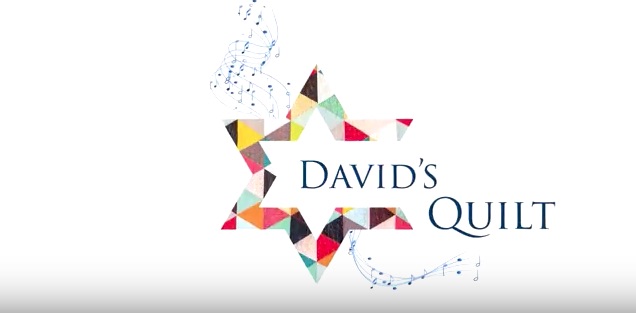 Screenshot from YouTube
Screenshot from YouTube There are enough unforgettable stories about David — the biblical poet, warrior and king — to fill several seasons of “Game of Thrones.” The story of David and Goliath even was referenced during a recent World Series broadcast. But what about the narratives that unfold with the likes of Bathsheba, Amnon, the Witch of Endor, Michal, Saul and Jonathan, too?
Selected strands of David’s wide-ranging story have been musically woven into “David’s Quilt,” an oratorio in 18 episodes by 15 Los Angeles-based composers, which premieres Nov. 5 at Stephen Wise Temple in Bel Air.
The project, begun two years ago by Valley Beth Shalom Cantor Phil Baron, found its way to UCLA music professor Mark Kligman, who helped shepherd it to completion. Now the free concert (reservations required) will kick off a two-day UCLA conference on Nov. 6-7, “American Culture and the Jewish Experience in Music,” which explores the ways European-Jewish sensibilities responded to American opportunity, transforming both cultures.
“We need to see Jewish music as a living entity.” – Mark Kligman
“Premiering a work like ‘David’s Quilt’ anchors our conference in the creative environment of Los Angeles,” said Kligman, who holds the Mickey Katz Chair in Jewish Music at UCLA. “It’s also a wonderful opportunity to create new music. We need to see Jewish music as a living entity, not just something in the past.”
For Baron, the biblical David’s flaws and inconsistencies make him one of the most approachable of the Bible’s heroes — and perfect for such an ambitious musical treatment.
“David is humanized through his imperfections,” Baron said. “He’s so much more than the stories of David and Goliath or Bathsheba. With the exception of Moses, there’s never been a character quite so large in our tradition.”
Baron said the styles of music in the piece vary widely. “We told the composers to write in the style of you, and that worked,” he said.
Like the oratorio, the two-day conference presents a quilt-like variety of topics and voices. On Nov. 6, David Lefkowitz, UCLA professor of composition, will lead a discussion “Jews and the L.A. Music Industry.” Another session delves into the extraordinary Milken Archive of Jewish Music with “Discovering a World of American Jewish Music,” a talk by the archive’s curator, Jeff Janeczko.
Subsequent sessions feature Judah Cohen of Indiana University looking at singing societies and choral music in the 19th-century American synagogue. Cohen also will lead a distinguished panel of scholars speaking on the significance and afterlife of the musical “Fiddler on the Roof.”
Professor Daniel Goldmark of Case Western Reserve University in Cleveland will explore what Jewish music sounded like in early 20th-century media. In another session, Goldmark will tackle the legacy of “The Jazz Singer,” the 1927 film about a cantor’s son who makes it big on Broadway, with a presentation looking at the notable films, cartoons and television shows inspired by the popular film.
“American pop culture is still drawing on the same basic musical palette of themes established in the 1910s and ’20s, themes for Native Americans, Jews, for most ethnicities,” Goldmark said.
The conference concludes on Nov. 7 with a re-creation of an April 24, 1945, chamber concert organized by musicologist Anneliese Landau at the Wilshire Ebell Theatre. Works by Jewish émigré composers in L.A. — including Ernst Toch, Arnold Schoenberg and Louis Gruenberg — will be performed by UCLA music students at Royce Hall, with commentary by musicologist Lily Hirsch, who is completing a biography of Landau, who died in 1991.
“The 1945 concert was an incredibly political concert,” Hirsch said. “[Landau] was a champion of contemporary music with a keen sense of justice. To her, these composers deserved a platform. Re-creating the concert is important because it focuses attention on this remarkable woman and the history of musical politics in the United States.”
UCLA’s Kligman, who also directs the Lowell Milken Fund for American Jewish Music, said the conference is intended as “a comfortable hybrid of accessible and academic,” designed to inform and enlighten both the public and the UCLA community. Although the conference covers a lot of ground, Kligman said there’s no one answer as to what American-Jewish music is.
“Jewish music in America has yet to become a discipline,” he said. “It’s many different kinds of things, redefined and used in different ways. It’s an exciting arena.”






















 More news and opinions than at a Shabbat dinner, right in your inbox.
More news and opinions than at a Shabbat dinner, right in your inbox.